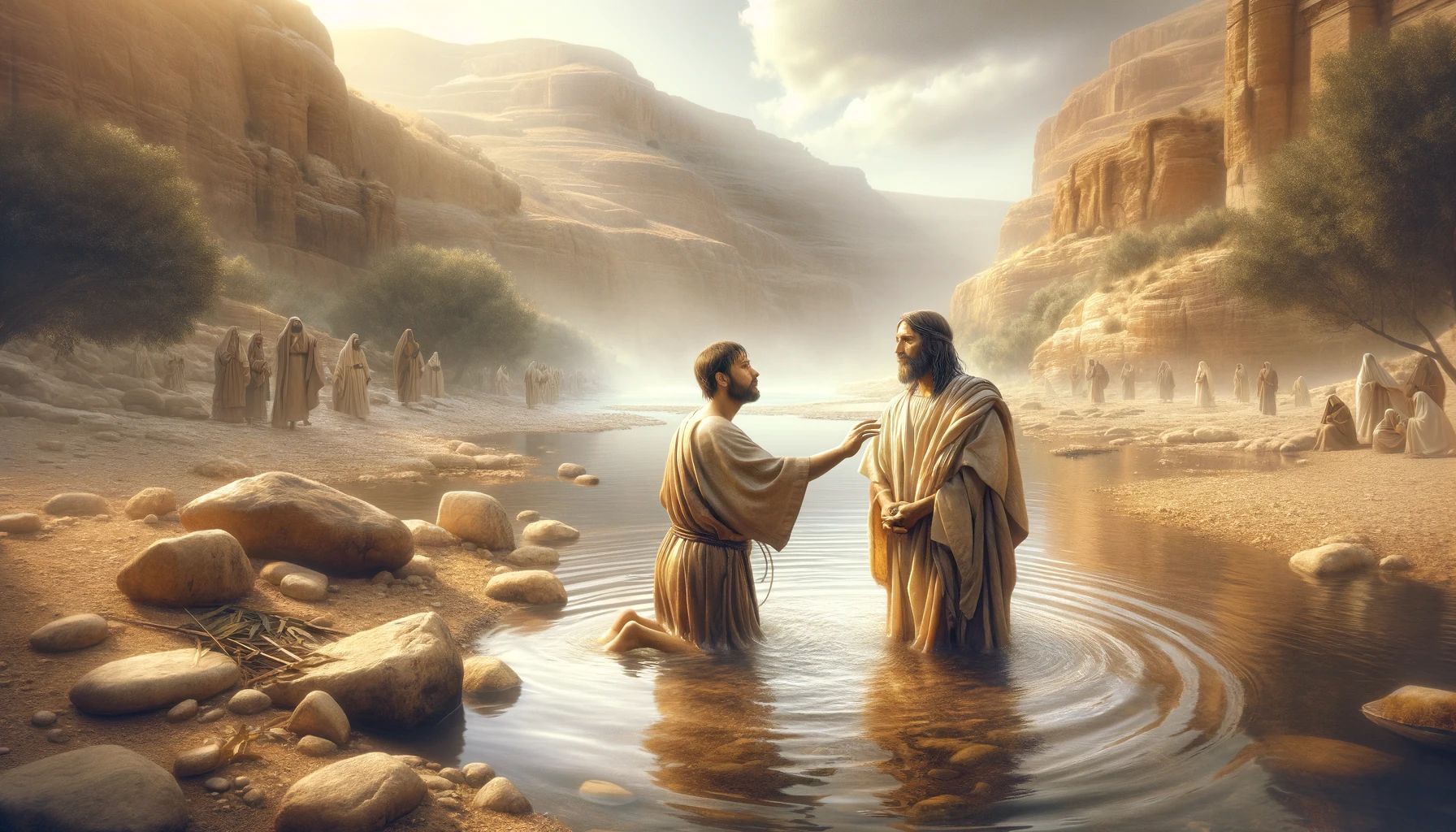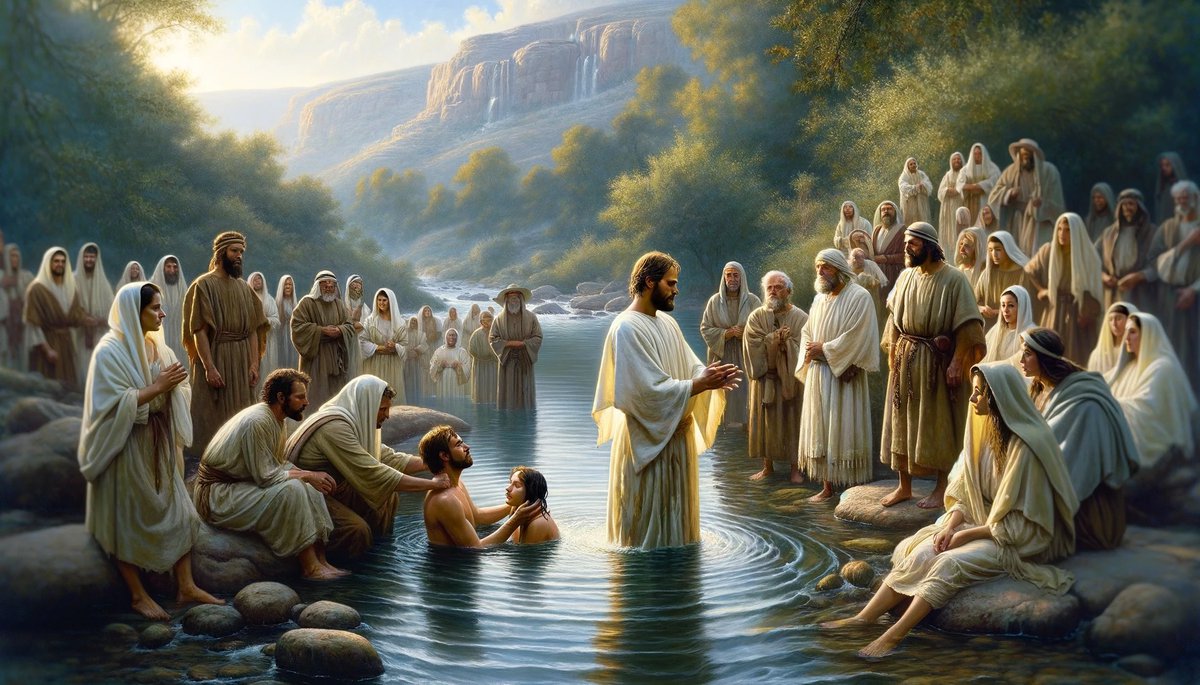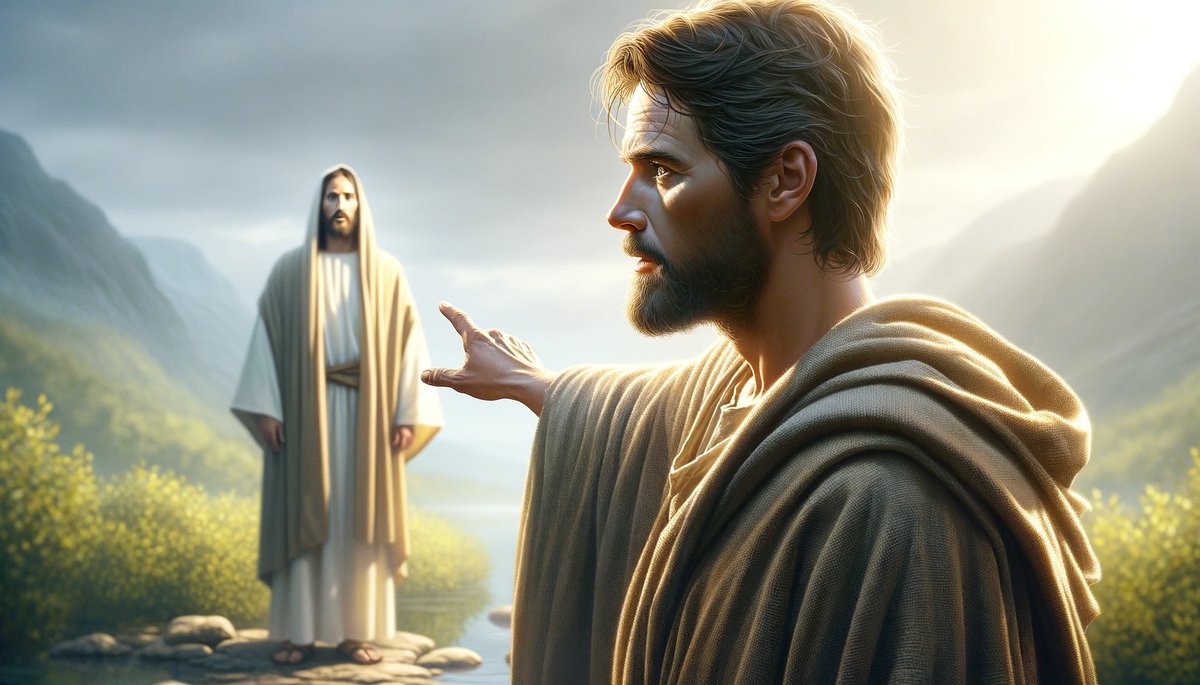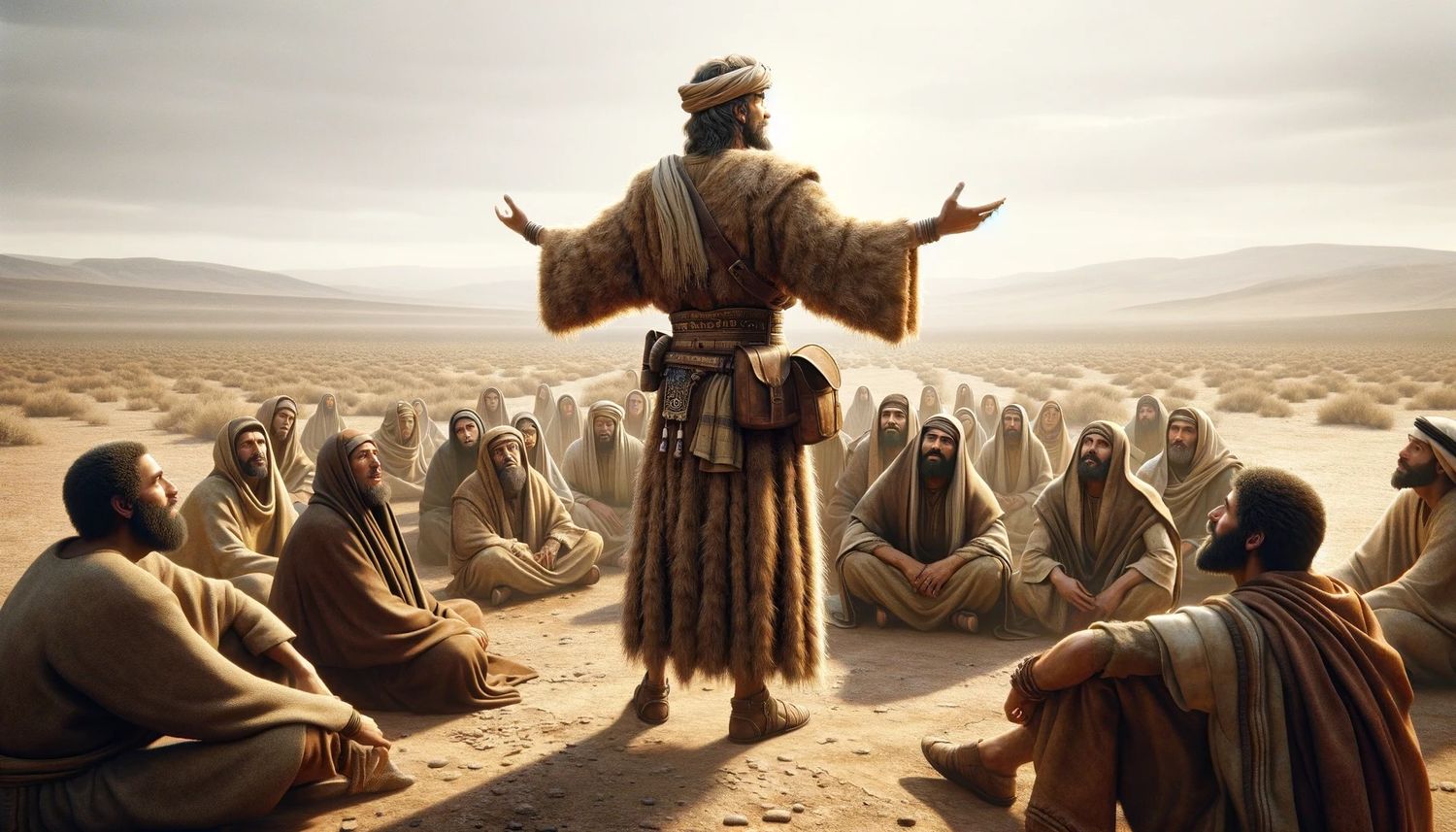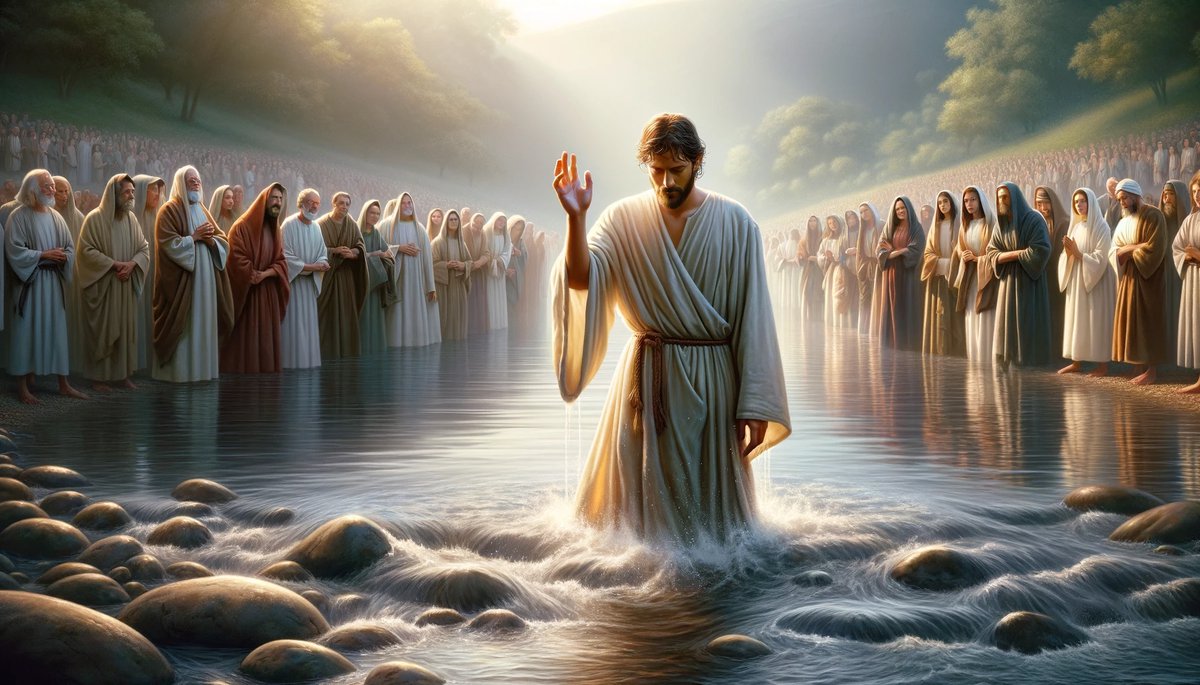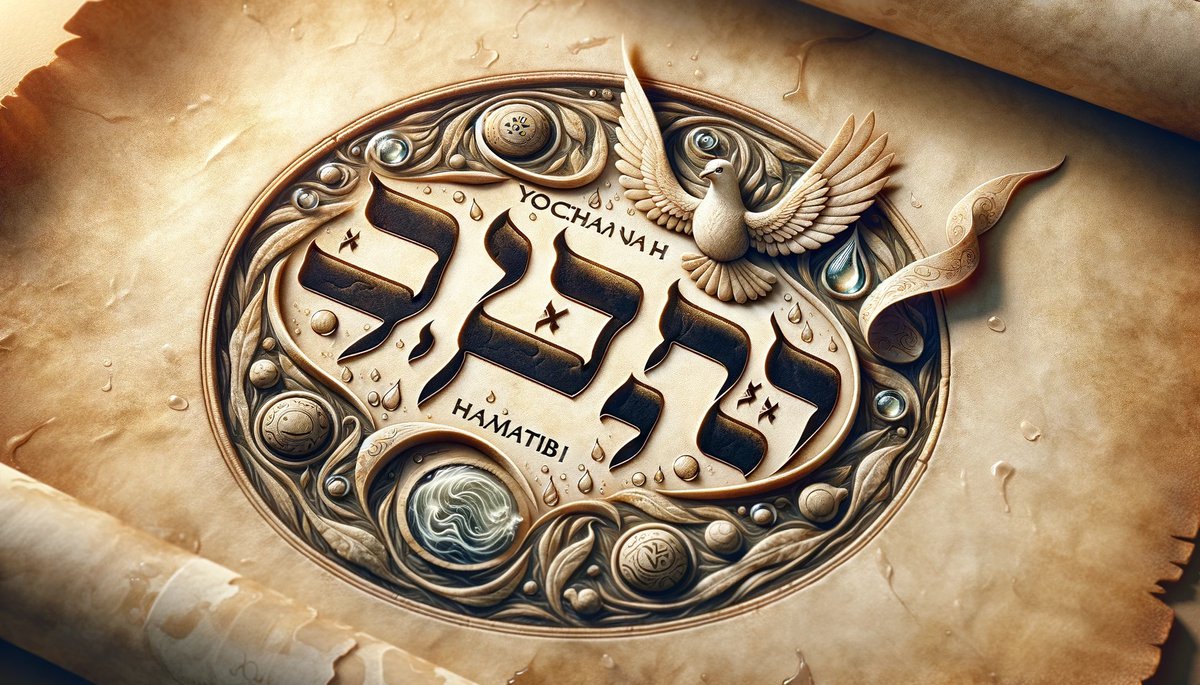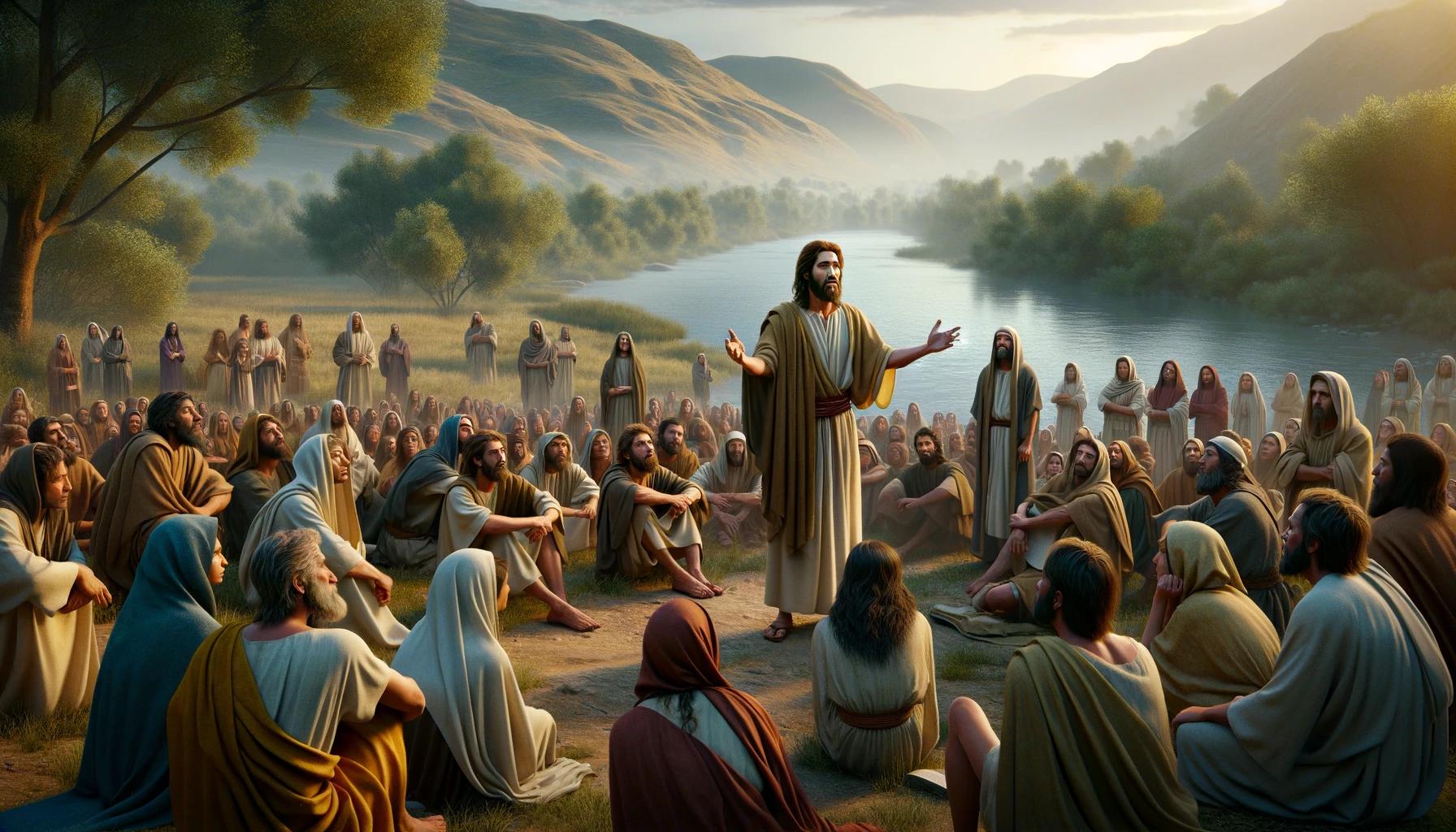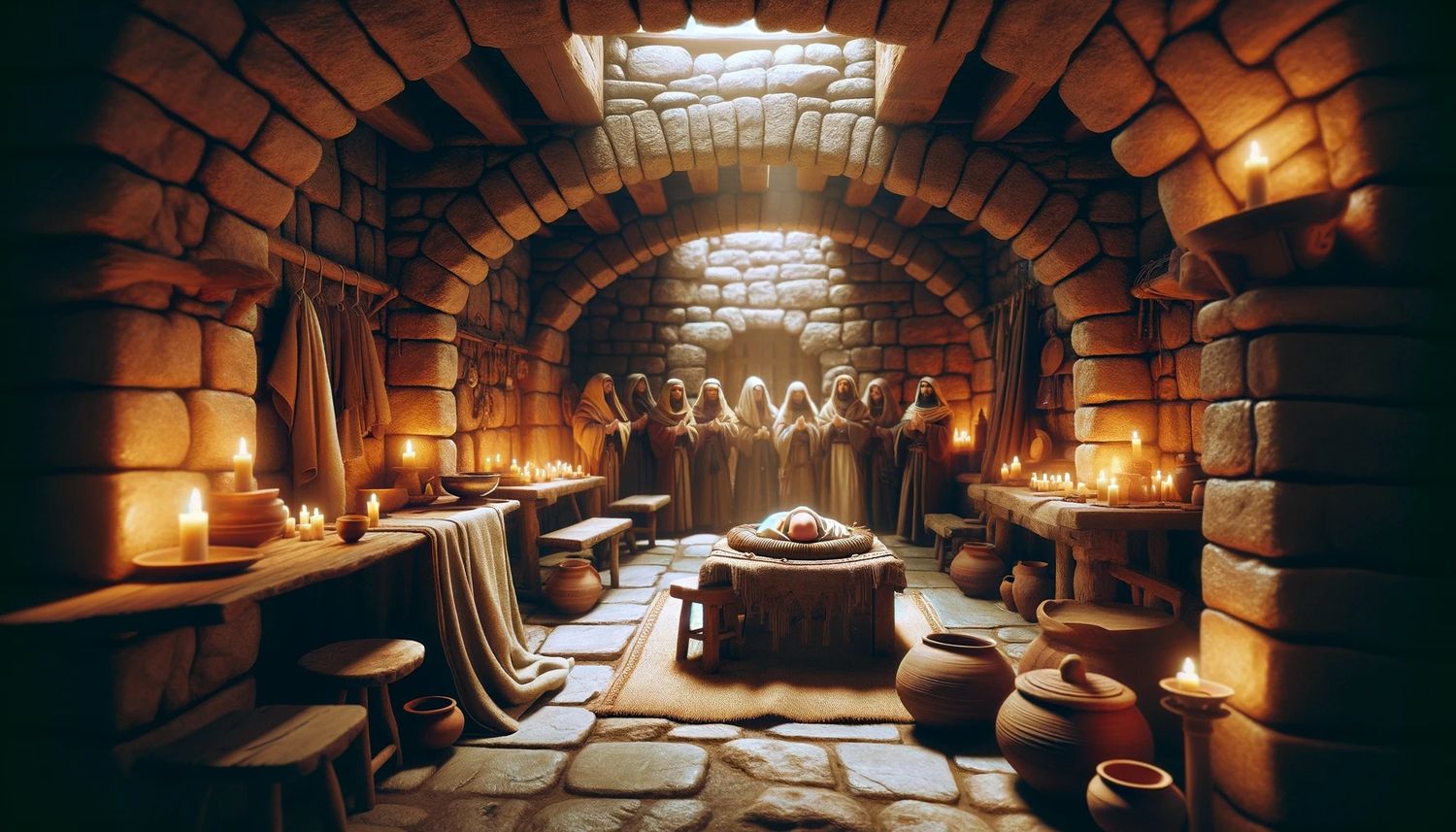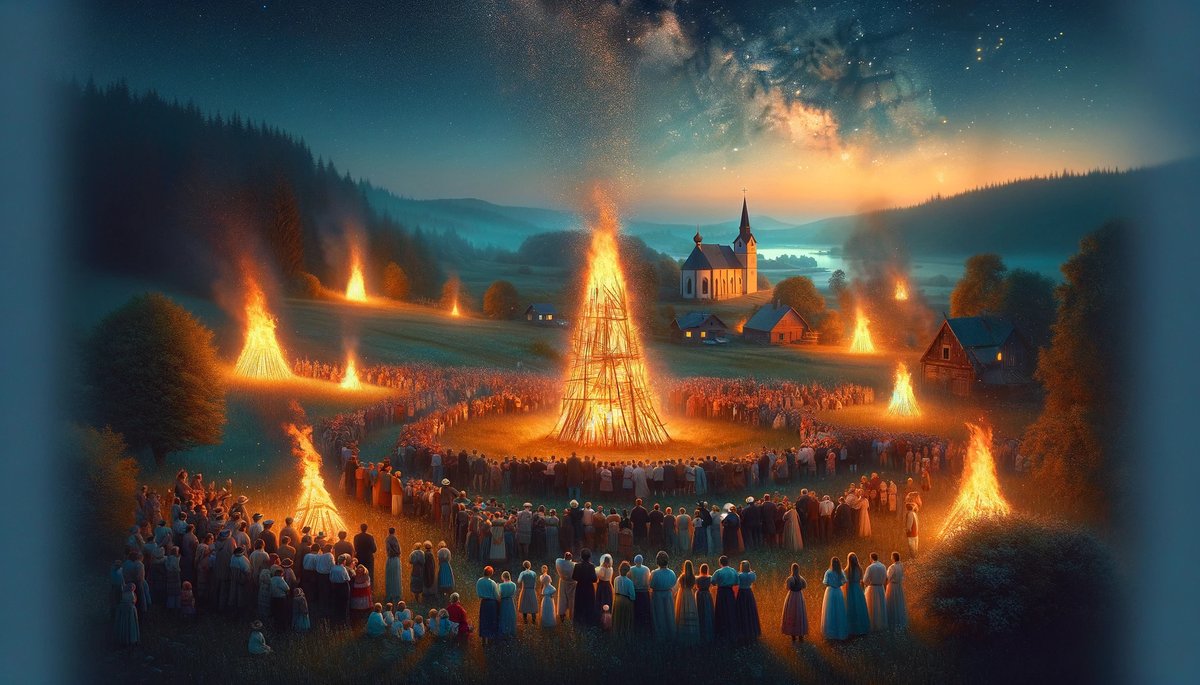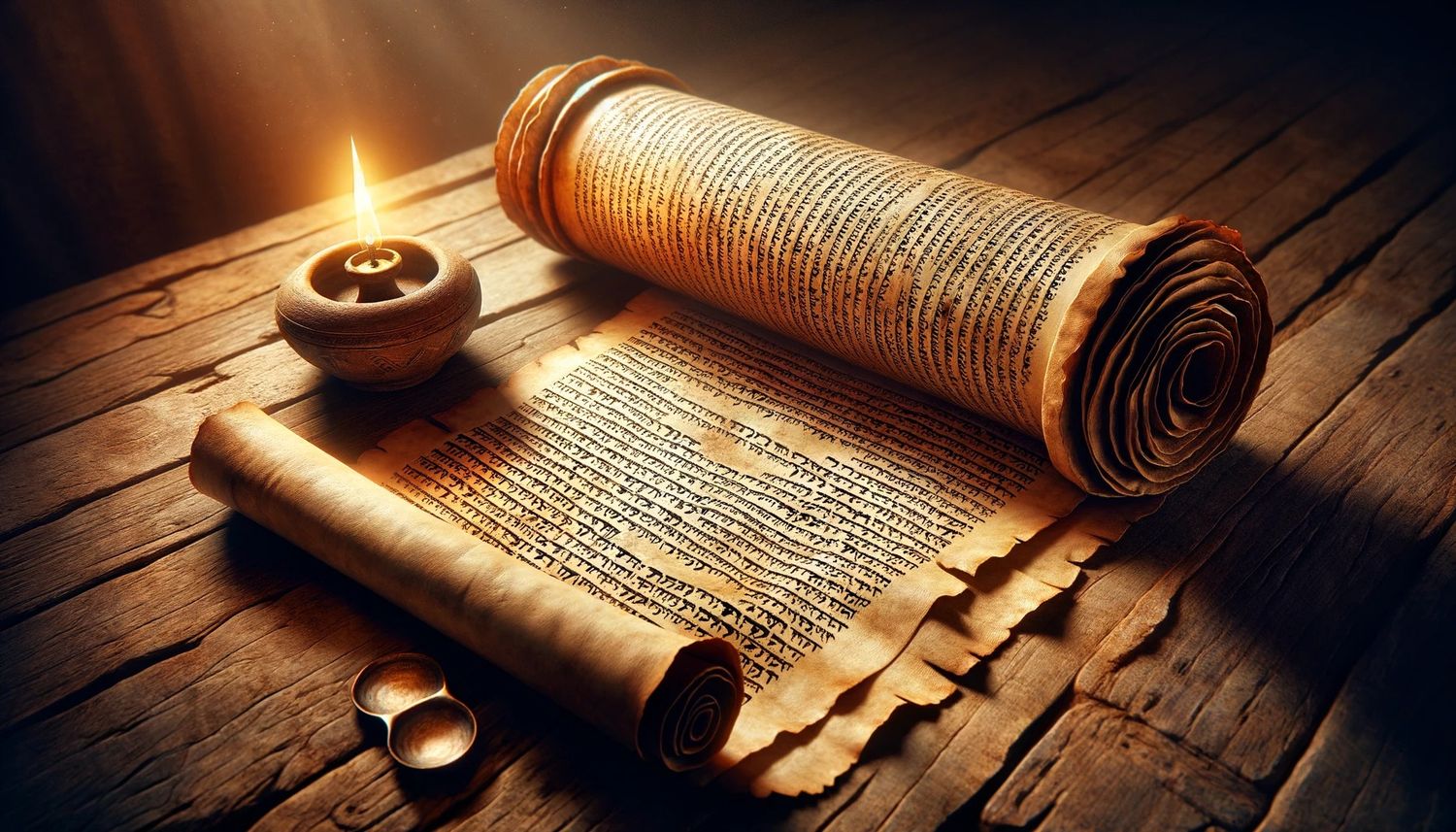Home>Theology and Spirituality>Of What Tribe Was John The Baptist


Theology and Spirituality
Of What Tribe Was John The Baptist
Published: February 23, 2024
Jason DeRose, Managing Editor at Christian.net, uses his expertise in religion and journalism to deepen understanding of faith's societal impacts. His editorial leadership, coupled with a strong academic background, enriches the platform’s diverse content, earning him recognition in both journalism and religious circles.
Discover the significance of John the Baptist's tribe in theology and spirituality. Explore the historical and cultural context of his heritage. Unlock the spiritual insights of his tribal identity.
(Many of the links in this article redirect to a specific reviewed product. Your purchase of these products through affiliate links helps to generate commission for Christian.net, at no extra cost. Learn more)
Table of Contents
Introduction
John the Baptist is a prominent figure in Christian history, known for his pivotal role in preparing the way for the ministry of Jesus Christ. His significance extends beyond his prophetic mission, as his lineage and tribal affiliation hold profound spiritual and historical implications. Delving into the tribe of John the Baptist unveils a rich tapestry of ancestral heritage and divine providence, shedding light on the interconnectedness of biblical narratives and the fulfillment of ancient prophecies. In exploring the tribe of John the Baptist, we embark on a journey that intertwines genealogy, spirituality, and the unfolding of God's redemptive plan.
This exploration not only provides insight into the historical context of John the Baptist but also offers a deeper understanding of the interconnectedness of biblical figures and the overarching narrative of salvation. The tribe of John the Baptist serves as a foundational element in comprehending the intricate web of relationships and prophecies that underpin the Christian faith. As we unravel the significance of John the Baptist's tribal lineage, we gain a heightened appreciation for the divine orchestration that permeates the biblical account, shaping the destinies of individuals and nations.
The lineage of John the Baptist holds a unique place in the tapestry of biblical genealogy, intertwining with the lineage of Jesus Christ himself. This intersection of ancestral lines underscores the profound interconnectedness of key figures in the biblical narrative, illuminating the divine design that weaves through generations and culminates in the advent of the Messiah. By delving into the tribe of John the Baptist, we are invited to witness the intricate threads of providence and purpose that bind together the lives of those who played instrumental roles in preparing the way for the fulfillment of God's redemptive plan.
As we embark on this exploration of John the Baptist's tribal heritage, we are beckoned to contemplate the profound significance of ancestral lineage in the unfolding of divine purposes. The tribe of John the Baptist serves as a testament to the intricate tapestry of human history interwoven with divine intervention, inviting us to ponder the profound implications of lineage and heritage in the overarching narrative of God's redemptive mission.
Read more: What Was John The Baptist’s Baptism For?
The Tribe of John the Baptist
John the Baptist, a central figure in Christian history, belonged to the priestly lineage of the tribe of Levi. This affiliation with the tribe of Levi holds profound significance, as it aligns with the priestly role that John the Baptist would later fulfill in preparing the way for the ministry of Jesus Christ. The tribe of Levi, set apart for sacred service in the Old Testament, was entrusted with the priestly duties within the Israelite community. This heritage underscores the pivotal role that John the Baptist would come to embody as a herald of the Messiah, echoing the sacred lineage of his forebears.
The tribe of Levi, known for its dedication to the service of God and the spiritual welfare of the people, provided a fitting backdrop for the prophetic ministry of John the Baptist. His ancestral connection to this tribe imbued his mission with a sense of divine calling and continuity with the priestly traditions of his lineage. This affiliation also resonates with the prophetic anticipation of a forerunner who would herald the arrival of the long-awaited Messiah, as foretold in the Old Testament scriptures.
Furthermore, the tribe of Levi's historical role in upholding the sanctity of worship and spiritual leadership aligns with John the Baptist's proclamation of repentance and preparation for the coming of Christ. His lineage from the tribe of Levi serves as a poignant reminder of the seamless continuity between the Old Testament priesthood and the prophetic fulfillment embodied in the ministry of John the Baptist.
The tribal affiliation of John the Baptist not only underscores the continuity of divine purpose across generations but also highlights the intricate interplay between ancestral heritage and the unfolding of God's redemptive plan. As we contemplate the tribe of John the Baptist, we are invited to recognize the profound significance of lineage in shaping the destinies of those called to play pivotal roles in the narrative of salvation history.
In essence, the tribe of John the Baptist serves as a foundational backdrop that enriches our understanding of his prophetic mission and underscores the interconnectedness of biblical figures across generations. This affiliation with the tribe of Levi amplifies the spiritual resonance of John the Baptist's ministry, infusing it with the timeless echoes of priestly devotion and prophetic anticipation that characterized his ancestral lineage.
The Lineage of John the Baptist
John the Baptist's lineage traces back to his father, Zechariah, who was a priest of the division of Abijah, belonging to the tribe of Levi. Zechariah's wife, Elizabeth, was also of the priestly lineage, descending from the daughters of Aaron. This distinguished lineage is significant as it underscores John the Baptist's deep-rooted connection to the priestly heritage of Israel. The convergence of both Zechariah and Elizabeth's priestly lineages accentuates the sacred and prophetic dimensions of John the Baptist's ancestry.
The priestly lineage of John the Baptist is intricately interwoven with the historical tapestry of Israel's religious heritage. His forebears, who served as custodians of the sacred rites and rituals, paved the way for John the Baptist to step into his prophetic role as the herald of the Messiah. This ancestral legacy imbued John the Baptist's ministry with a profound sense of continuity and divine purpose, aligning him with the longstanding traditions of priestly service and prophetic anticipation.
Moreover, the lineage of John the Baptist intersects with the miraculous circumstances surrounding his birth. Zechariah and Elizabeth, despite their old age and Elizabeth's previous inability to conceive, were blessed with a son through the divine intervention of God. This miraculous birth further accentuates the extraordinary nature of John the Baptist's lineage, marking it with divine favor and purpose.
The lineage of John the Baptist serves as a testament to the intricate interplay between human ancestry and divine providence. It underscores the meticulous orchestration of God's redemptive plan, weaving together the threads of ancestral heritage to fulfill prophetic promises and prepare the way for the advent of the Messiah. As such, the lineage of John the Baptist stands as a testament to the divine continuity that permeates the biblical narrative, shaping the destinies of individuals and nations in alignment with God's sovereign will.
In essence, the lineage of John the Baptist encapsulates the convergence of priestly heritage, prophetic anticipation, and divine intervention, culminating in the emergence of a pivotal figure whose life and ministry would resonate across the annals of Christian history.
The Importance of John the Baptist's Tribe
The tribe of John the Baptist holds profound significance in the tapestry of biblical history and the fulfillment of ancient prophecies. His affiliation with the priestly lineage of the tribe of Levi aligns with the prophetic anticipation of a forerunner who would prepare the way for the coming of the Messiah. This tribal connection underscores the divine orchestration that permeates the biblical narrative, weaving together ancestral heritage and spiritual destiny in alignment with God's redemptive plan.
John the Baptist's tribal affiliation serves as a bridge between the Old Testament priesthood and the advent of the Messiah, embodying the seamless continuity of divine purpose across generations. The tribe of Levi, entrusted with the sacred duties of worship and spiritual leadership, provided a fitting backdrop for John the Baptist's prophetic ministry of repentance and preparation for the arrival of Christ. His lineage from the tribe of Levi echoes the timeless echoes of priestly devotion and prophetic anticipation, infusing his mission with a sense of divine calling and continuity with the traditions of his forebears.
Furthermore, the tribal affiliation of John the Baptist underscores the interconnectedness of biblical figures across generations, highlighting the intricate interplay between ancestral heritage and the unfolding of God's redemptive plan. His lineage serves as a testament to the meticulous orchestration of God's redemptive plan, weaving together the threads of ancestral heritage to fulfill prophetic promises and prepare the way for the advent of the Messiah.
In essence, the importance of John the Baptist's tribe lies in its role as a foundational backdrop that enriches our understanding of his prophetic mission and underscores the interconnectedness of biblical figures across generations. His tribal affiliation with the tribe of Levi amplifies the spiritual resonance of his ministry, infusing it with the timeless echoes of priestly devotion and prophetic anticipation that characterized his ancestral lineage. This affiliation serves as a testament to the divine continuity that permeates the biblical narrative, shaping the destinies of individuals and nations in alignment with God's sovereign will.
Conclusion
In conclusion, the exploration of John the Baptist's tribal lineage unveils a tapestry of ancestral heritage and divine providence that resonates deeply within the narrative of Christian history. His affiliation with the priestly lineage of the tribe of Levi serves as a testament to the intricate interplay between ancestral heritage and the unfolding of God's redemptive plan. The tribe of Levi, entrusted with the sacred duties of worship and spiritual leadership, provided a fitting backdrop for John the Baptist's prophetic ministry, infusing his mission with a sense of divine calling and continuity with the traditions of his forebears.
The lineage of John the Baptist, intricately interwoven with the historical tapestry of Israel's religious heritage, underscores the profound interconnectedness of key figures in the biblical narrative. His lineage from the tribe of Levi echoes the timeless echoes of priestly devotion and prophetic anticipation, infusing his mission with a profound sense of continuity and divine purpose. Moreover, the convergence of both Zechariah and Elizabeth's priestly lineages accentuates the sacred and prophetic dimensions of John the Baptist's ancestry, marking it with divine favor and purpose.
The importance of John the Baptist's tribe lies in its role as a foundational backdrop that enriches our understanding of his prophetic mission and underscores the interconnectedness of biblical figures across generations. His tribal affiliation serves as a testament to the meticulous orchestration of God's redemptive plan, weaving together the threads of ancestral heritage to fulfill prophetic promises and prepare the way for the advent of the Messiah. This affiliation with the tribe of Levi amplifies the spiritual resonance of John the Baptist's ministry, infusing it with the timeless echoes of priestly devotion and prophetic anticipation that characterized his ancestral lineage.
In essence, the tribe of John the Baptist serves as a testament to the divine continuity that permeates the biblical narrative, shaping the destinies of individuals and nations in alignment with God's sovereign will. As we reflect on the significance of John the Baptist's tribal lineage, we are invited to recognize the profound implications of lineage and heritage in the overarching narrative of God's redemptive mission. It stands as a testament to the intricate tapestry of human history interwoven with divine intervention, inviting us to ponder the profound implications of ancestral lineage in the narrative of salvation history.

